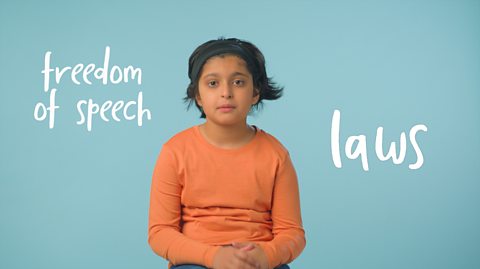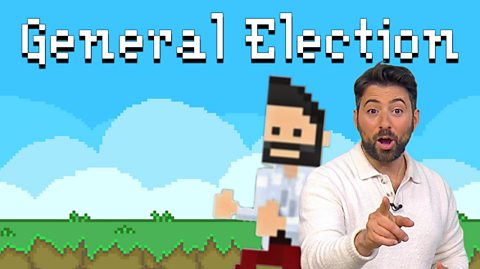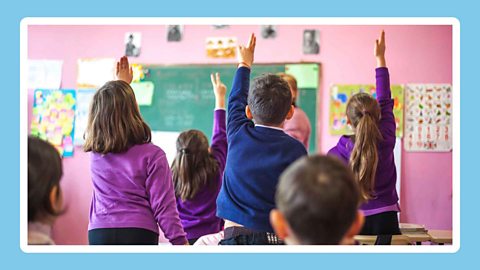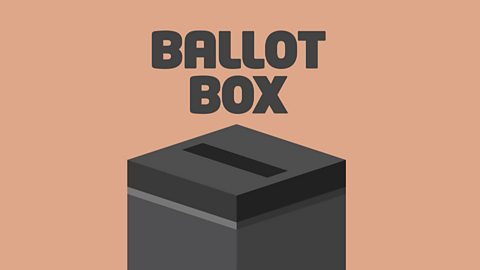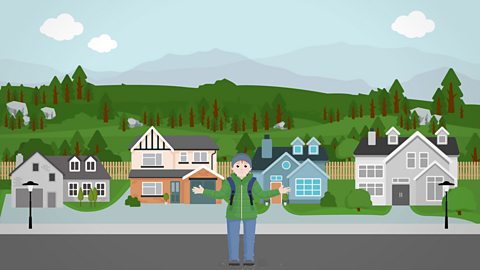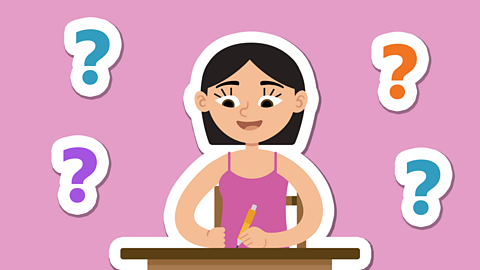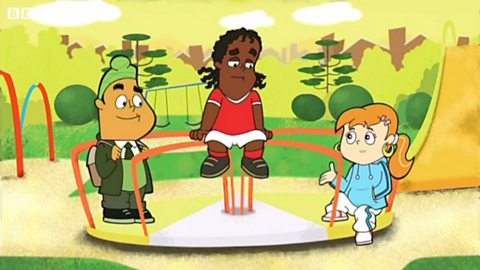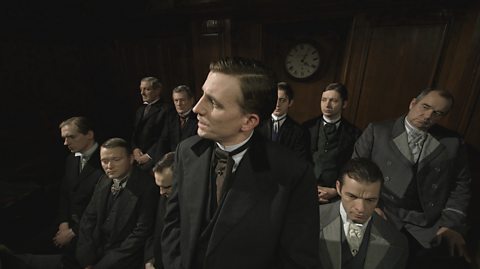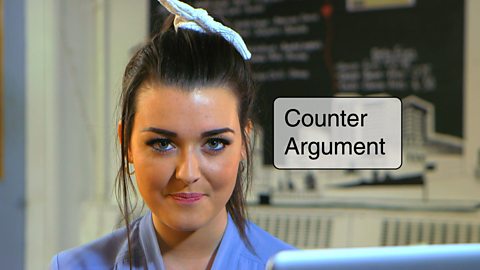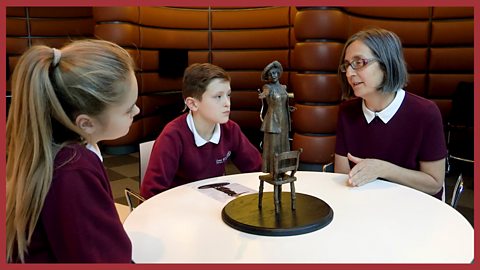General election
Because the UK is a parliamentary democracy, we have the right to vote for who runs the country every 5 years.
The last general election was on 4th July 2024
A general election is when voters decide who their member of parliament* (MP) will be. MPs belong to political parties and the party with the most MPs can form a government to make laws and other decisions to run the country.
Citizenship
What is democracy?
What is democracy? Learn more about participating in democracy.
VOICEOVER: Have you heard of democracy? What is it?
CHILD 1: Democracy is when people have a say on how they want their country run.
CHILD 2: And it lets us elect someone who’s called a Prime Minister.
CHILD 3: And the leader decides on important policies.
VOICEOVER: The word democracy means “rule by the people”, meaning each of us has a say in how our country is run. We do this by voting in elections for people in different political parties. Elections take place all over the country and we vote for someone in these parties to represent us in parliament. The party with the most elected members will form the UK government.
Although in this country we have a ‘monarch’, another word for king or queen, The UK Government is led by the Prime Minister and they are in charge!
What do you think members of parliament help to do?
CHILD 2: They like listen to their town’s ideas and then they represent them in the Houses of Parliament.
CHILD 1: MPs help us and support our ideas to get them to the government to make them into rules.
CHILD 4: They ask questions and ask for changes to be made.
VOICEOVER: MPs do lots of different things, from answering questions, to debating and voting on UK laws to protect us. Why do you think it’s important for us to have democracy?
CHILD 3: It’s important for people to have a say on who their leaders should be.
CHILD 2: It gives us freedom of speech.
CHILD 4: It can bring about change in lots of areas that can affect everyday people.
CHILD 5: t helps things to be fair and so we have equality.
CHILD 2: It lets us make and change laws that protect us from harm.
CHILD 1: People can vote.
VOICEOVER: Being able to vote is a key part of democracy. Voting is a way to have your say on things that matter to you, and it means that everyone can be involved in important decision-making.
Can you think of a time you’ve voted?
CHILD 3: We vote on what our treats should be spent on, what movie to watch.
CHILD 2: I voted for form captain - we have to choose someone that we think will be sensible.
CHILD 1: I voted for the student voice in our school so that I can have a school which is happier and nicer.
VOICEOVER: Having democracy means we can all play a part in how our country is run and have a say in the things that affect us.
What things are important to you, either in your local community or the country as a whole? It’s never too early to get involved and have a say!
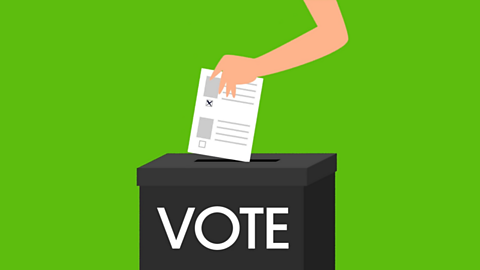
In the UK we have political parties.
In a general election candidates from each party campaign to be elected in their own areas.
The person with the most votes in each area becomes a Member of Parliament ('MP').
The party with the most MPs in Parliament forms the Government. They are in charge.
The government leader is called the Prime Minister.

Geography
Where is the election held?
The general election is held across the UK. This means that the nations of England, Scotland, Wales and Northern Ireland all get to vote in the general election.
The entire UK is divided into 650 small areas called constituencies. Each constituency has its own MP to represent it. As well as helping to govern the whole country, MPs represent their constituency.
Some come from cities, others from the country and different things might be important to the people in their local area.
History
Who can vote in the general election?
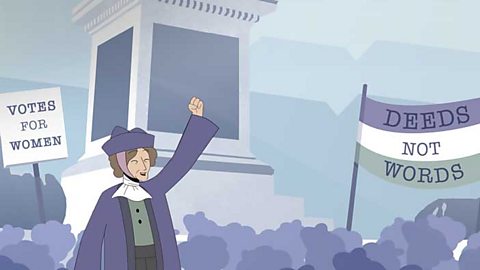
Only adults - people aged 18 and over - can vote in a general election.
People need to register to vote to be allowed to take part.
The right to vote is called suffrage. All men got the right to vote in the UK in 1832.
Women fought hard for the right to vote, which they got in 1918. However, this only included women over 30 who owned property, while men could vote at age 21. All men and women over the age of 21 got the right to vote in 1928, making it equal.
In 1969 they lowered the voting age to 18 years old.

Who was Emmeline Pankhurst?
KS2 History
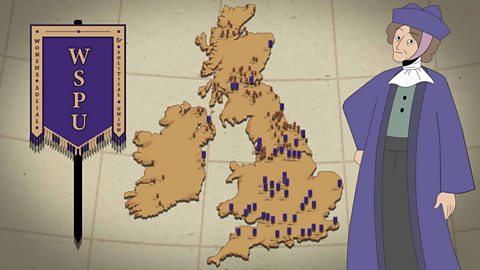
English
How do politicians persuade people?
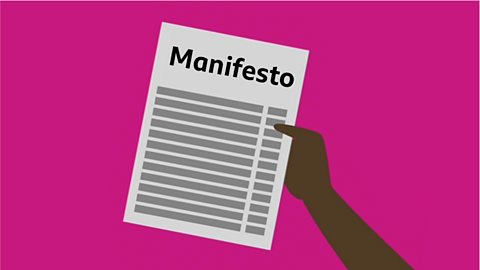
Politicians need to persuade people. This means trying to get people to agree to their point of view.
Before the election, the political parties have to tell us why it would be a good idea to vote for them. They have different ways to try and convince people.
Manifestos. A manifesto is a big collection of all the ideas the party has for the country. It might include ideas like spending more money on hospitals, or charging people less tax. All their ideas go into one big document to show what they hope to do if they win
Leaflets. Political parties make thousands of leaflets and post them through their doors. These give people information about who is trying to get voted in as the local MP and what they want to do
Debates. A debate is an organised argument. The leaders of political parties take turns answering questions and try to show us that they are right and the other parties don't have the best ideas.

What is a debate?
Learn about what a debate is with this Bitesize - KS2 English guide.
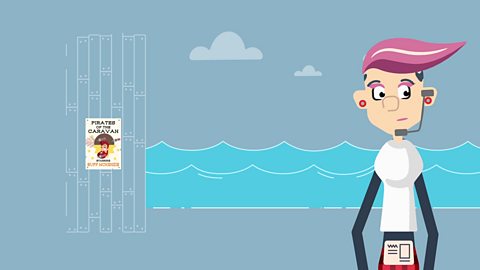
More from BBC Teach
SATs preparation resources. activitySATs preparation resources
Get ready for the SATs papers with videos, activities, quizzes and games to refresh your knowledge and practise your skills.

More on Understanding the world around me
Find out more by working through a topic
- count1 of 6
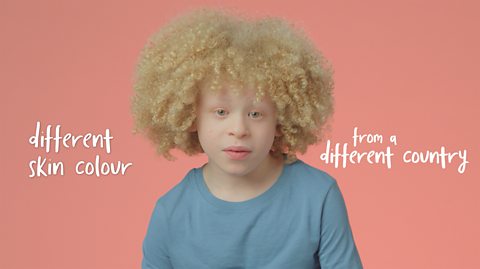
- count2 of 6
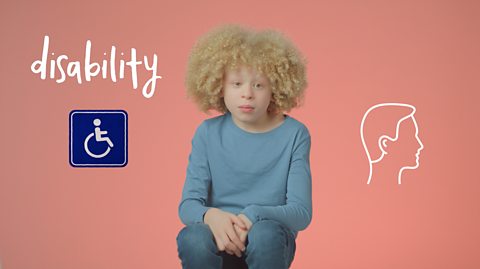
- count3 of 6
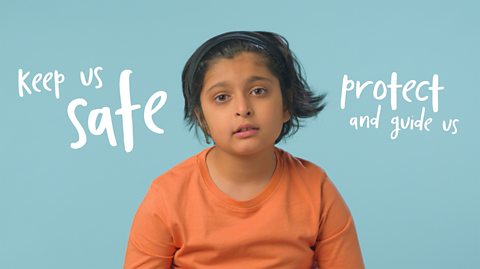
- count4 of 6
